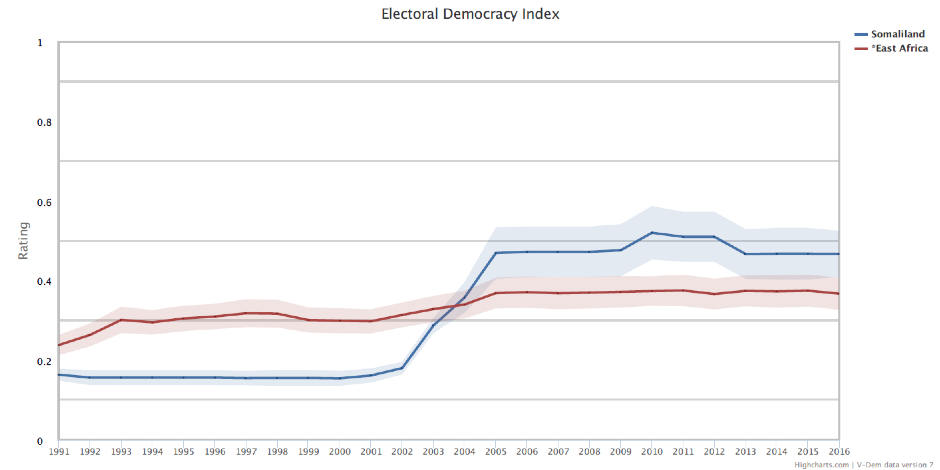Presidential Elections in Somaliland
By: V-Dem Staff
Nov 09, 2017
Today, November 13, Presidential elections are planned in Somaliland. The elections, originally scheduled for 2015, were first postponed to March this year but were postponed again to November due to famine conditions and widespread violence in the region. In anticipation of these elections, this week’s graph looks at V-Dem’s Electoral Democracy Index in Somaliland since it declared independence in 1991.
The Electoral Democracy Index measures to what extent the ideal of electoral democracy is achieved. The principle that electoral democracy seeks to embody is the responsiveness of the ruler to citizens, achieved through electoral competition under conditions of extensive suffrage. It also takes into account the extent to which civil society can operate freely, elections are clean, fair or without systematic irregularities, and that election outcomes affect the composition of the chief executive. It also takes account of whether there is freedom of expression and an independent media capable of presenting alternative political views. A higher value indicates that the country approaches the ideal behind this principle to a greater extent.
In the graph, we can see that electoral democracy increased in Somaliland since independence in 1991, with a noticeable improvement following the country’s first elections in 2003 and the scores has since been above the East African regional average. However, the development stagnated and we can see a tentative negative trend in recent years in Somaliland. With the next update of V-Dem data, we will see if this year’s postponed elections and Somaliland’s inability to hold elections on schedule continues to affect the scores on the index negatively.
To learn more about the democratic development in East Africa, use our online analysis tools at v-dem.net.


